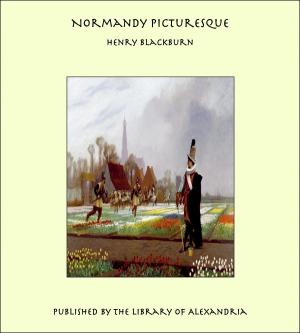Springhaven: A Tale of the Great War
Nonfiction, Religion & Spirituality, New Age, History, Fiction & Literature| Author: | Sir Richard Blackmore | ISBN: | 9781465601643 |
| Publisher: | Library of Alexandria | Publication: | March 8, 2015 |
| Imprint: | Language: | English |
| Author: | Sir Richard Blackmore |
| ISBN: | 9781465601643 |
| Publisher: | Library of Alexandria |
| Publication: | March 8, 2015 |
| Imprint: | |
| Language: | English |
In the days when England trusted mainly to the vigor and valor of one man, against a world of enemies, no part of her coast was in greater peril than the fair vale of Springhaven. But lying to the west of the narrow seas, and the shouts both of menace and vigilance, the quiet little village in the tranquil valley forbore to be uneasy. For the nature of the place and race, since time has outlived memory, continually has been, and must be, to let the world pass easily. Little to talk of, and nothing to do, is the healthy condition of mankind just there. To all who love repose and shelter, freedom from the cares of money and the cark of fashion, and (in lieu of these) refreshing air, bright water, and green country, there is scarcely any valley left to compare with that of Springhaven. This valley does not interrupt the land, but comes in as a pleasant relief to it. No glaring chalk, no grim sandstone, no rugged flint, outface it; but deep rich meadows, and foliage thick, and cool arcades of ancient trees, defy the noise that men make. And above the trees, in shelving distance, rise the crests of upland, a soft gray lias, where orchards thrive, and greensward strokes down the rigor of the rocks, and quick rills lace the bosom of the slope with tags of twisted silver. In the murmur of the valley twenty little waters meet, and discoursing their way to the sea, give name to the bay that receives them and the anchorage they make. And here no muddy harbor reeks, no foul mouth of rat-haunted drains, no slimy and scraggy wall runs out, to mar the meeting of sweet and salt. With one or two mooring posts to watch it, and a course of stepping-stones, the brook slides into the peaceful bay, and is lost in larger waters. Even so, however, it is kindly still, for it forms a tranquil haven.
In the days when England trusted mainly to the vigor and valor of one man, against a world of enemies, no part of her coast was in greater peril than the fair vale of Springhaven. But lying to the west of the narrow seas, and the shouts both of menace and vigilance, the quiet little village in the tranquil valley forbore to be uneasy. For the nature of the place and race, since time has outlived memory, continually has been, and must be, to let the world pass easily. Little to talk of, and nothing to do, is the healthy condition of mankind just there. To all who love repose and shelter, freedom from the cares of money and the cark of fashion, and (in lieu of these) refreshing air, bright water, and green country, there is scarcely any valley left to compare with that of Springhaven. This valley does not interrupt the land, but comes in as a pleasant relief to it. No glaring chalk, no grim sandstone, no rugged flint, outface it; but deep rich meadows, and foliage thick, and cool arcades of ancient trees, defy the noise that men make. And above the trees, in shelving distance, rise the crests of upland, a soft gray lias, where orchards thrive, and greensward strokes down the rigor of the rocks, and quick rills lace the bosom of the slope with tags of twisted silver. In the murmur of the valley twenty little waters meet, and discoursing their way to the sea, give name to the bay that receives them and the anchorage they make. And here no muddy harbor reeks, no foul mouth of rat-haunted drains, no slimy and scraggy wall runs out, to mar the meeting of sweet and salt. With one or two mooring posts to watch it, and a course of stepping-stones, the brook slides into the peaceful bay, and is lost in larger waters. Even so, however, it is kindly still, for it forms a tranquil haven.















